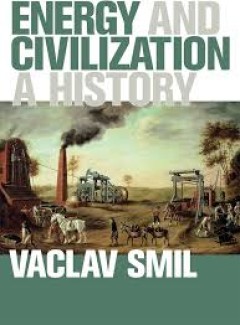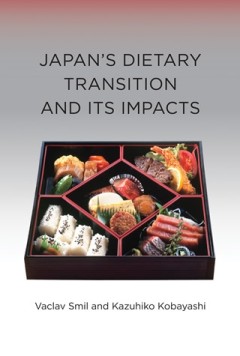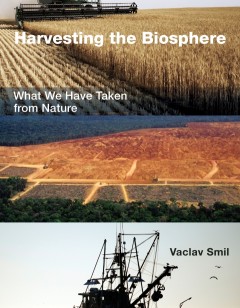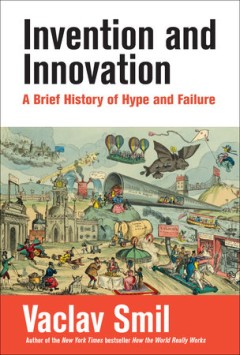Filter by

Energy and civilization a history
Extensively updated and expanded edition of the author's Energy in world history (Boulder : Westview Press, 1994).Energy is the only universal currency; it is necessary for getting anything done. The conversion of energy on Earth ranges from terra-forming forces of plate tectonics to cumulative erosive effects of raindrops. Life on Earth depends on the photosynthetic conversion of solar energy …
- Edition
- -
- ISBN/ISSN
- 9780262338301
- Collation
- 1 online resource (vii, 552 pages) :illustrations
- Series Title
- -
- Call Number
- -

Japan's Dietary Transition and Its Impacts
An examination of the transformation of the Japanese diet from subsistence to abundance and an assessment of the consequences for health, longevity, and the environment.OCLC-licensed vendor bibliographic record.
- Edition
- -
- ISBN/ISSN
- 9780262305389
- Collation
- 1 online resource (xii, 229 pages) :illustrations.
- Series Title
- -
- Call Number
- -

Harvesting the biosphere :what we have taken from nature
An interdisciplinary and quantitative account of human claims on the biosphere's stores of living matter, from prehistoric hunting to modern energy production. The biosphere—the Earth's thin layer of life—dates from nearly four billion years ago, when the first simple organisms appeared. Many species have exerted enormous influence on the biosphere's character and productivity, but none …
- Edition
- -
- ISBN/ISSN
- 9780262312264
- Collation
- 1 online resource
- Series Title
- -
- Call Number
- -

Invention and innovation :a brief history of hype and failure
"Smil presents the long history and modern infatuation with invention and innovation. Meticulous as always, these vast realms of human ingenuity are organized into sensible categories: inventions that went from welcome to undesirable, inventions that dominate and missed the mark, inventions we still dream about, and lastly, the exaggerations, myths, and wise expectations for innovations we need…
- Edition
- -
- ISBN/ISSN
- 9780262374262
- Collation
- 1 online resource
- Series Title
- -
- Call Number
- -

GrowthFrom microorganisms to megacities
OCLC-licensed vendor bibliographic record.
- Edition
- -
- ISBN/ISSN
- 9780262354516
- Collation
- 1 online resource (688 pages).
- Series Title
- -
- Call Number
- -

Why America is not a new Rome
An investigation of the America-Rome analogy that goes deeper than the facile comparisons made on talk shows and in glossy magazine articles.America's post-Cold War strategic dominance and its pre-recession affluence inspired pundits to make celebratory comparisons to ancient Rome at its most powerful. Now, with America no longer perceived as invulnerable, engaged in protracted fighting in Iraq…
- Edition
- -
- ISBN/ISSN
- 9780262283885
- Collation
- 1 online resource (xii, 226 pages) :illustrations, maps
- Series Title
- -
- Call Number
- -

Global catastrophes and trends :the next 50 years
From the Publisher: Fundamental change occurs most often in one of two ways: as a "fatal discontinuity," a sudden catastrophic event that is potentially world changing, or as a persistent, gradual trend. Global catastrophes include volcanic eruptions, viral pandemics, wars, and large-scale terrorist attacks; trends are demographic, environmental, economic, and political shifts that unfold over …
- Edition
- -
- ISBN/ISSN
- 9780262283878
- Collation
- 1 online resource (xi, 307 pages) :illustrations, maps
- Series Title
- -
- Call Number
- -

Feeding the world :a challenge for the twenty-first century
A realistic yet encouraging look at how society can change in ways that will allow us to feed an expanding global population.This book addresses the question of how we can best feed the ten billion or so people who will likely inhabit the Earth by the middle of the twenty-first century. He asks whether human ingenuity can produce enough food to support healthy and vigorous lives for all these p…
- Edition
- First MIT paperback edition.
- ISBN/ISSN
- 9780262283861
- Collation
- 1 online resource
- Series Title
- -
- Call Number
- -

Energies :an illustrated guide to the biosphere and civilization
Originally published: 1999.Accurate, balanced AND imaginative.In this highly original book, ecologist Vaclav Smil presents a comprehensive and integrated survey of all the forms of energy that shape our world, from the sun to the human body, from bread to microchips. Written in a scientifically sophisticated yet accessible style, Energies consists of eighty-two short essays organized under six …
- Edition
- -
- ISBN/ISSN
- 9780262283830
- Collation
- 1 online resource (314 pages) :illustrations, maps
- Series Title
- -
- Call Number
- -

Invention and Innovation: A Brief History of Hype and Failure
The world is never finished catching up with Vaclav Smil. In his latest and perhaps most readable book, Invention and Innovation, the prolific author—a favorite of Bill Gates—pens an insightful and fact-filled jaunt through the history of human invention. Impatient with the hype that so often accompanies innovation, Smil offers in this book a clear-eyed corrective to the overpromises that a…
- Edition
- -
- ISBN/ISSN
- 9780262374262
- Collation
- -
- Series Title
- -
- Call Number
- -
 Computer Science, Information & General Works
Computer Science, Information & General Works  Philosophy & Psychology
Philosophy & Psychology  Religion
Religion  Social Sciences
Social Sciences  Language
Language  Pure Science
Pure Science  Applied Sciences
Applied Sciences  Art & Recreation
Art & Recreation  Literature
Literature  History & Geography
History & Geography